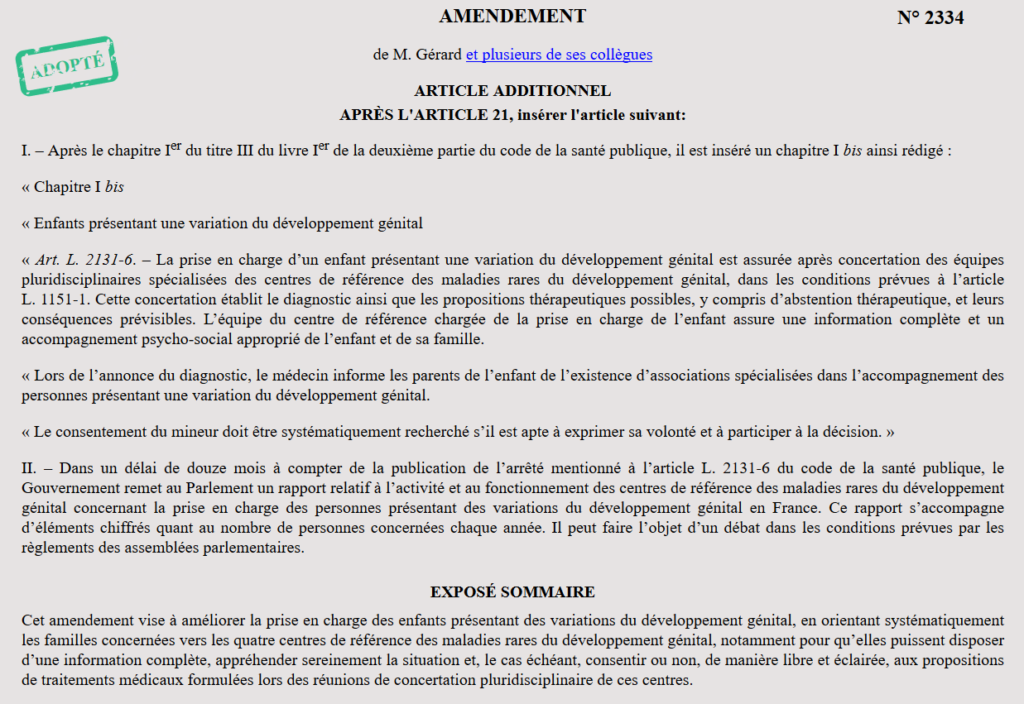Amendment to the French Bioethic law cements the status quo of unconsented surgeries on infants and children
Yesterday, on the 8th of October 2019, the national assembly in France has failed to prohibit non-vital surgeries on infants and children with a variation in their sex characteristics by 89 voices against 19.

The now adopted amendment 2334 to the French Bioethic Law stipulates that a specialized pluridisciplinary teams of reference centres for rare diseases shall be in charge of the care of a child born with a variation in genital development and shall establish “the diagnosis as well as possible therapeutic proposals, including therapeutic abstention, and their foreseeable consequences”.
Other stipulations include that the doctor shall “inform the child’s parents of the existence of associations specialising in supporting people with varying genital development” and that psycho-social care and counselling shall be provided by the multidisciplinary team throughout the process.
Last but not least, the amendment stipulates that “the consent of the juvenile must be systematically sought if he or she is able to express his or her will and participate in the decision.”
“We congratulate the French government for including the idea of therapeutic abstention and the stipulation that parents need to be informed about the existence of intersex associations. However, this amendment can only be considered a complete failure of the French government to protect intersex infants’ and children’s human rights and especially their rights to bodily autonomy and personal integrity. In France many surgical and other medical interventions are still performed right after birth and in the first two years of childhood, where the child clearly is in no position to give their consent.”, says Dan Christian Ghattas, Executive Director of OII Europe, and adds: “It is worrying that the French government not only disregards the clear call of the 2019 EU Parliament resolution [2018/2878(RSP), Resolution on the rights of intersex people] and the 2017 PACE resolution [Resolution 2191, Promoting the human rights of and eliminating discrimination against intersex people] to ban non-vital interventions on intersex infants and children but also the French Conseil d’Etat opinion on the revision of the bioethic law, which clearly determines any intervention on intersex infants and children to be unethical that is non-vital or treats an actual physical suffering.”
“We would at least have expected a reference to those limits set by the Conseil d’Etat opinion in the law. The law as it is now, will not sufficiently protect intersex children and is really disappointing. Only a clear ban of all non-vital interventions would give adequate protection “ adds Audrey Aegerter, member of the OII Europe Executive Board.
“The terminology used in the amendment again pathologize and as a result stigmatises intersex people. This perspective clearly does not foster a climate of social acceptance of bodily diversity”, points out Kitty Anderson, Co-Chair of OII Europe.
French intersex activists and their allies have worked hard to make sure that include intersex human rights would be the basis of bioethics law amendment. As we see today, this work has not yet come to an end. OII Europe will stand side by side with the Collectif Intersexes et Allié.e.s – OII France and the GISS / Alter Corpus to make sure that intersex infants, children, adolescents and adults can enjoy their human rights without exception.

